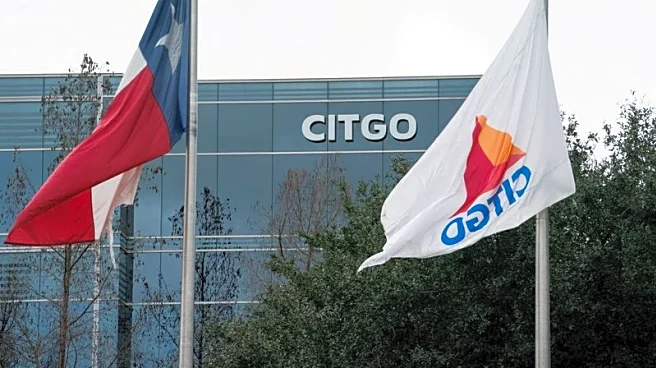By Marianna Parraga
HOUSTON (Reuters) -The auction of the parent of Venezuela-owned U.S. refiner Citgo Petroleum is turning into a heated contest between creditors trying to get compensation for the expropriation
of their Venezuelan assets and holders of a defaulted bond issued by the country's oil company PDVSA.
The interests of both groups have become increasingly opposed as a court in Delaware moves toward the completion of a bidding process that has lasted nearly two years and saw the supervising officer change his recommended winner last month amid a bidding war.
At stake is the future of the seventh largest U.S. refiner, owned by Venezuela and found liable for the South American nation's debt. The court plans to listen to all parties, witnesses and experts next week in a hearing to decide the auction's final winner.
In July, court officer Robert Pincus selected a $7.4 billion bid from a subsidiary of Toronto-listed miner Gold Reserve as the auction's frontrunner.
But following the arrival of unsolicited offers that forced the extension of the bidding period, he marked a $5.9 billion bid from an affiliate of hedge fund Elliott Investment Management as his recommended winner, mainly because it included a separate $2.1 billion cash payment that would settle a claim against Venezuela by the holders of a defaulted PDVSA bond.
The change has triggered objections and a motion from Gold Reserve and four other parties to disqualify the bid from Elliott's affiliate Amber Energy, which is pending. Holders of the PDVSA 2020 bonds and top creditors Crystallex and ConocoPhillips have supported Amber's bid, according to court filings.
The switch also has intensified a long-standing clash in U.S. courts between companies whose Venezuelan assets were expropriated more than a decade ago and defaulted bondholders.
"The sudden shift reopens the debate over how the PDVSA 2020 notes risk is priced, a question that has swung the process before," said consultancy Aurora Macro Strategies in a report last month.
The PDVSA 2020 bonds, which have been rallying since Pincus determined that Amber's bid was superior, were trading at 98.5 cents on the dollar on Tuesday after reaching an all-time record of 100 cents last week.
WHO'S FIRST?
Gold Reserve, Venezuela and other creditors want to wait for the resolution of a separate, key case in New York over the validity of the bonds before paying anything to the holders, while some bidders, including Amber, propose settling the bondholders' claim now to remove an obstacle that has been clouding the auction.
The difference in those strategies has created a gap of at least $2 billion in the valuation of the offers, making bids difficult to compare.
Court officer Pincus said on Friday that "the evaluation criteria adopted by the court makes clear that the bid with the highest price tag will not necessarily be the best bid."
The gap also has become crucial for the determination of how many of the 15 claimants registered in Delaware to collectively cash up to $19 billion from auction proceeds will get compensation, and if paying the bondholders beforehand will deprive some creditors of payment.
While Amber's bid fully covers nine creditors plus a small portion of Gold Reserve's $1.18 billion claim if accepted, the Gold Reserve group's bid proposes full coverage of 12 creditors.
Gold Reserve declined to comment. Amber Energy did not reply to a request for comment.
New York Judge Katherine Polk Failla said on Tuesday that a decision on the bondholders' rights will come this month, which could change the weight and priority bidders have assigned to that claim.
In Delaware, parties are this week getting ready for the sale hearing, which could include a second set of arguments next month if Judge Leonard Stark chooses to wait for the New York ruling before making his final decision.
(Reporting by Marianna Parraga; Editing by Nathan Crooks and Marguerita Choy)










